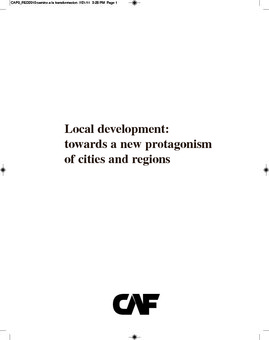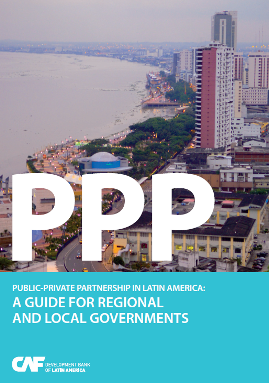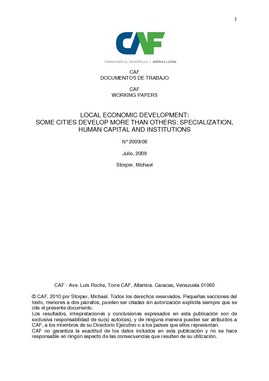RED 2010: Local development: towards a new protagonism of cities and regions (chapter one)
Resumen
The analysis presented throughout this publication suggest that a successful local development strategy should be comprehensive, that is, it should act upon all of the determinants of development and at the same time base itself on the territory. Thus, subnational governments play a key role in its design and implementation. This role goes beyond the formally mandated powers of spending, taxation and regulation emerging from the decentralization process. Ultimately, what makes a city or region more or less competitive is the prevalence of “soft” institutions, consisting of popular assemblies, neighborhood associations, business chambers, learning and cultural centers, among others, through which different stakeholders may interact, express demands and share information within an atmosphere of cooperation and trust. At the local level, the possibility of creating this institutional fabric is favored by the physical proximity of the diverse interests. These institutions enable a more efficient public decision-making process that can successfully respond to both the risks and the opportunities that are generated by technological change and national and international economic trends.With the sixth edition of this Report on Economics and Development, CAF hopes to contribute to the debate on the role of subnational governments (alongside other local actors) in the economic development of Latin America. Reducing income gaps and other variables that affect quality of life require the sourcing of goods and services, both public and private, whose production technology involves the use of local resources, such as human capital and institutions, which cannot easily be provided by the central government. This proves the fundamental role that territorial stakeholders play.
Materia
País / Región
Fecha
2010-07Citar de esta publicación
Item perteneciente a la Colección
Items Relacionados
Public-Private Partnership in Latin America: A Guide for Regional and Local Governments
PPPs are complex, long-duration contractual structures with higher transaction and financing costs than conventional procedures. Furthermore, governments ...
Local economic development. Some cities develop more than others: specialization, human capital and institutions
Why does a certain metropolitan area grow more than another? The answer to this question has evaded much of the considerable body of scholarship on the ...
Decentralizing Development: Evidence from Government Splits
Changes in political boundaries aimed at devolving power to local governments are common in many countries. We examine the economic consequences of ...






